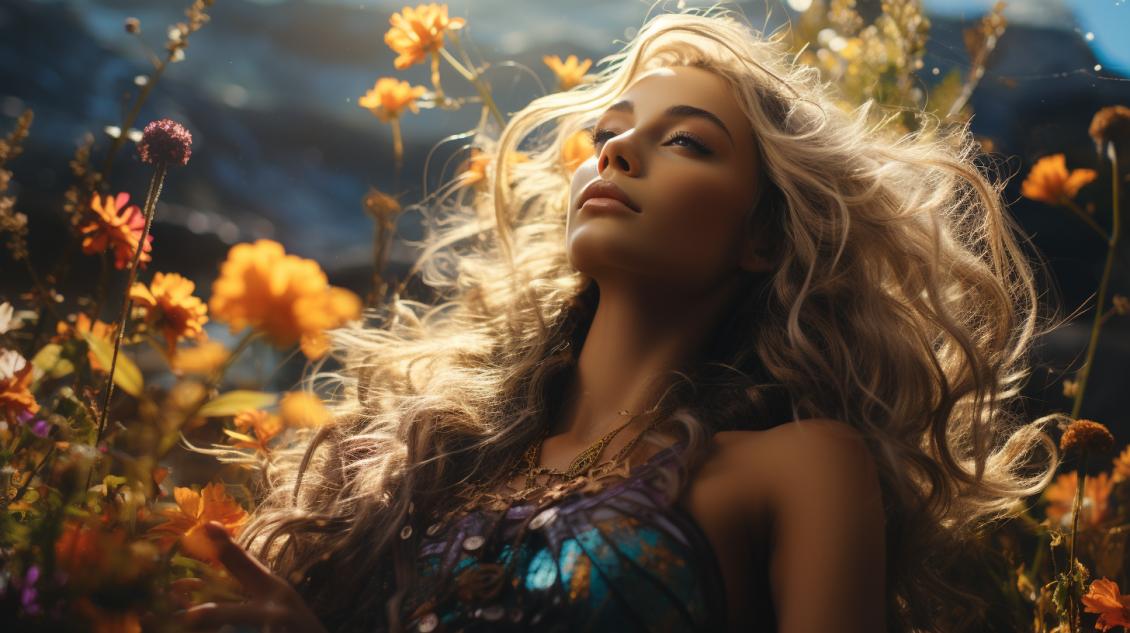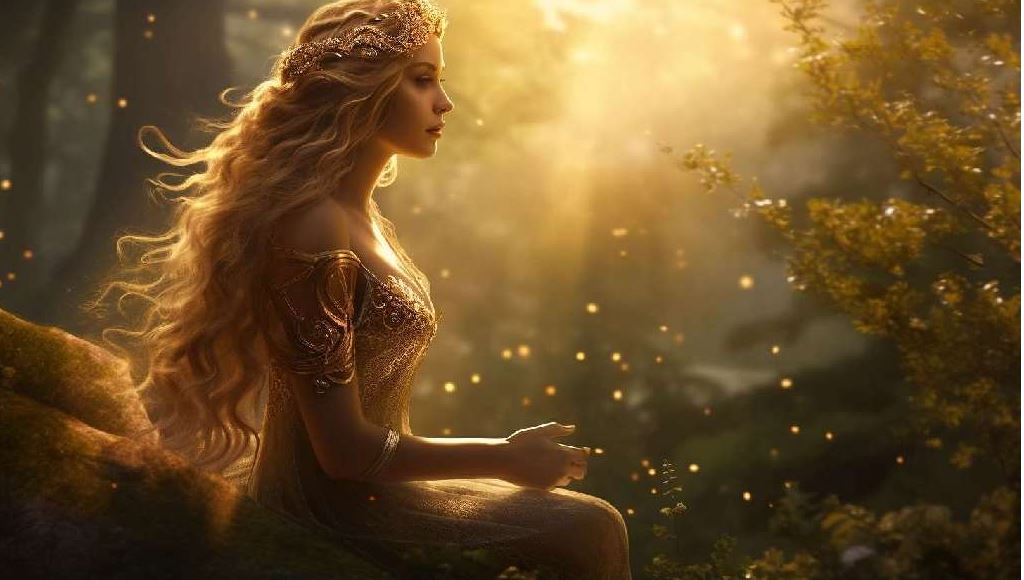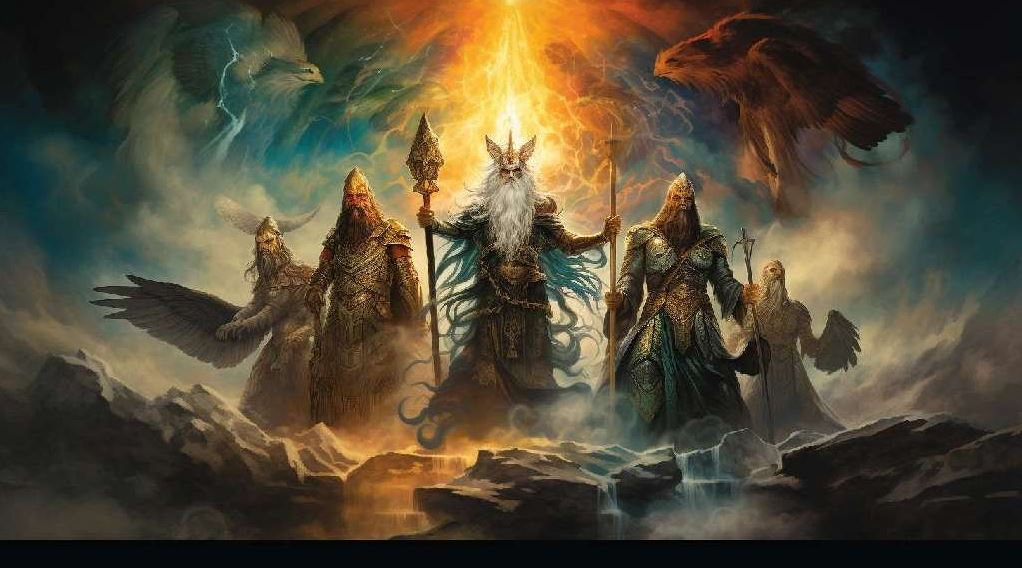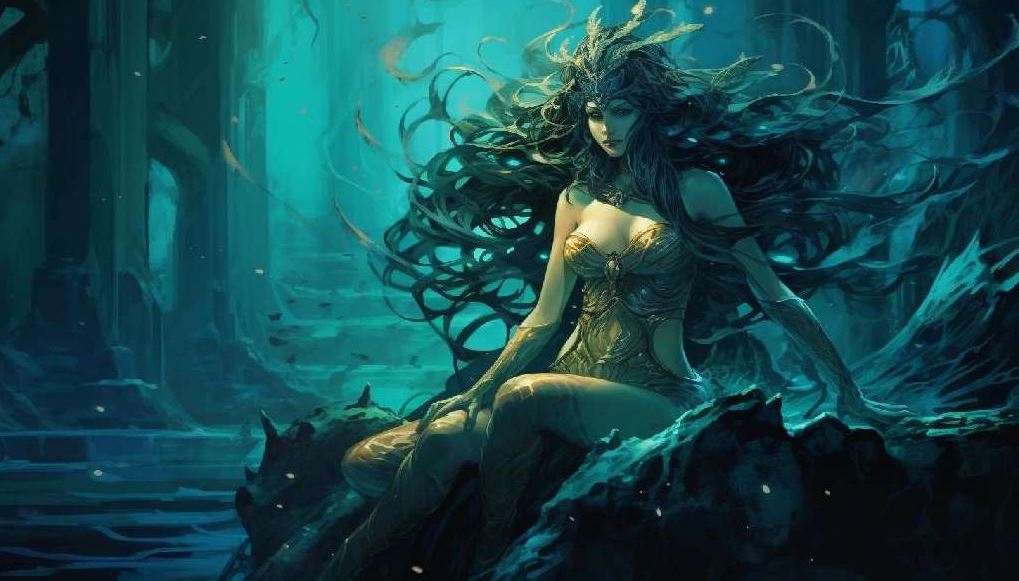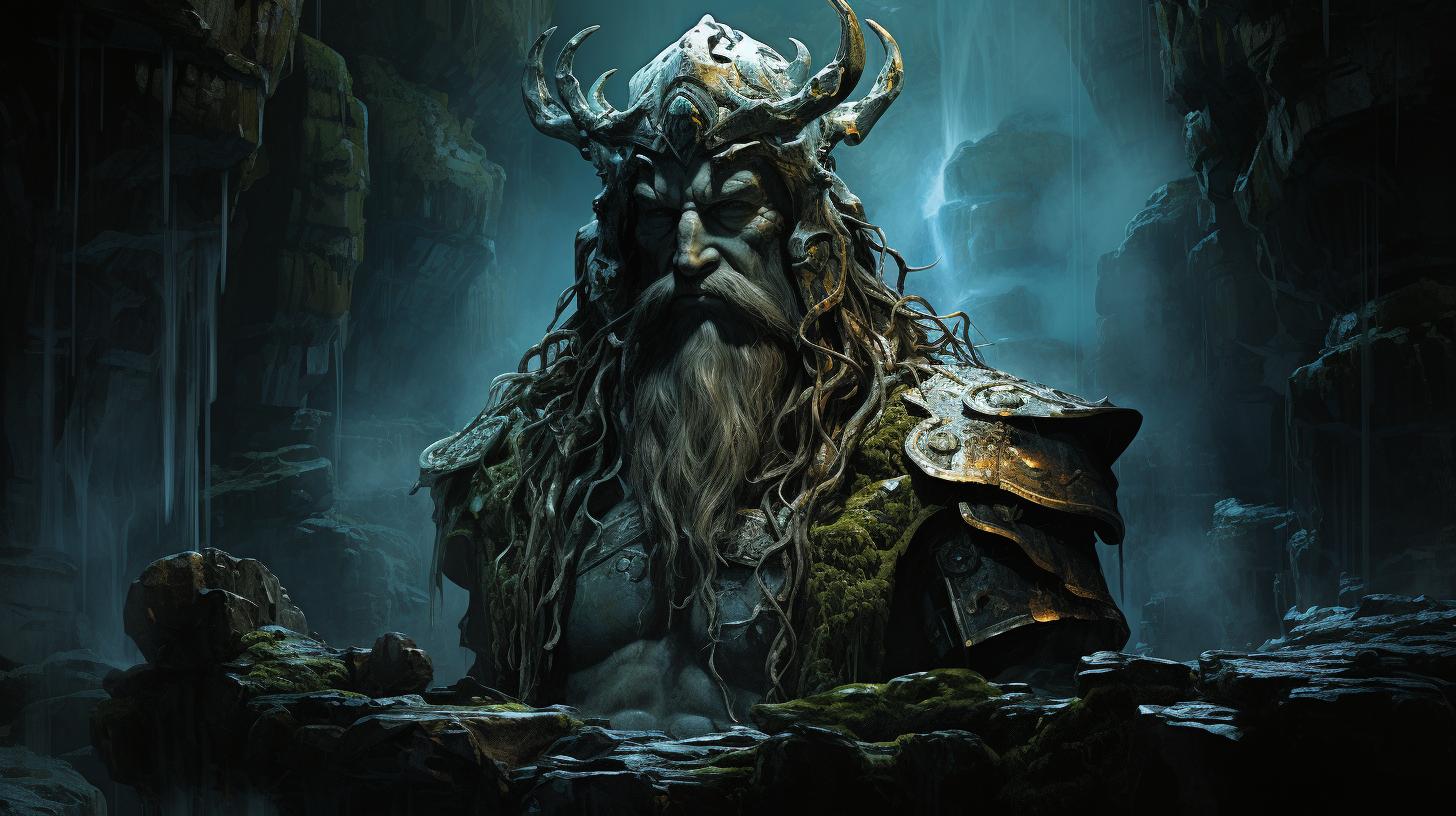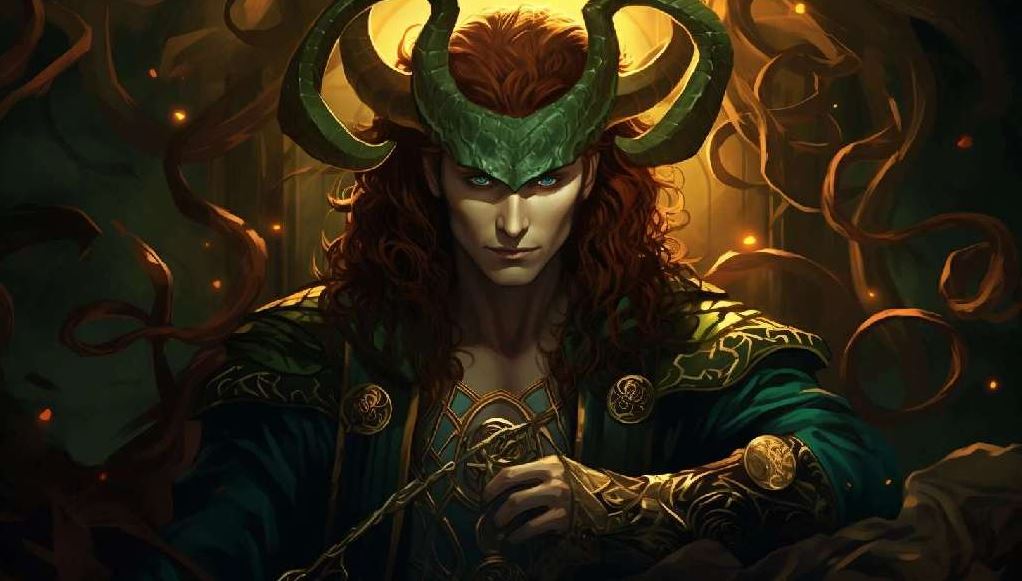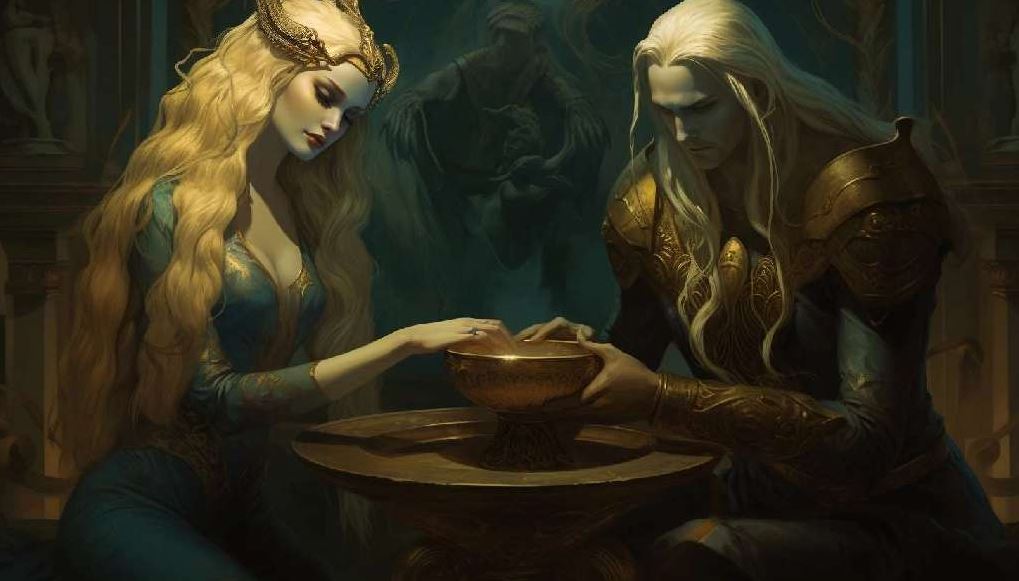Fulla Norse Goddess: The Powerful Guardian and Sister of Frigg
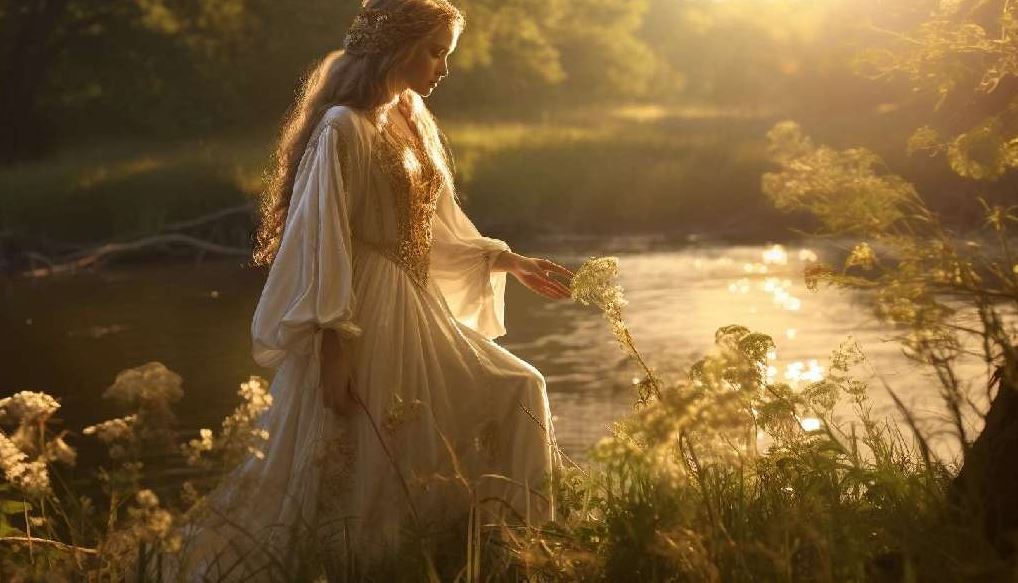
Fulla, the Norse goddess, holds a significant role in Norse mythology as the trusted sister and guardian of Frigg, the goddess associated with marriage and motherhood. She is described as the protector of Frigg‘s enchanted chest, which contains magical slippers and treasured possessions.
Fulla’s duties include safeguarding Frigg from the wrath of Odin and sharing her secrets. The ancient festival of Up-Hella-Aa, derived from Norse mythology, involves burning a longship to ward off evil spirits and welcome the abundance of spring.
Fulla’s presence extends to contemporary neopaganism and popular culture, reflecting her enduring influence.
Attestations in Norse Mythology
In exploring the mythology of the Norse pantheon, the goddess Fulla emerges as an intriguing figure with significant references in Old Norse literature. Her role is particularly emphasized in the Prose Edda and the Poetic Edda, where her presence and influence intertwine with other deities.
Reference to Fulla in Old Norse Literature
Within Old Norse literature, Fulla is mentioned as a prominent and vital goddess. Although her appearance may be limited, her association with the goddess Frigg is consistently highlighted. She is portrayed as Frigg‘s trusted and devoted sister, playing a crucial role in their divine bond.
Fulla’s Role in the Prose Edda
In the Prose Edda, Fulla is mentioned as the guardian of Frigg‘s enchanted chest, containing various magical items, including her revered pair of slippers. As Frigg‘s confidante, Fulla is often entrusted with the secrets of her sister, protecting her from Odin‘s ire and assisting in safeguarding Frigg‘s treasures.
Fulla in the Poetic Edda
The Poetic Edda, through its poetic verses, provides further glimpses into Fulla’s importance. Though she may not command extensive narratives, her existence as a companion and confidante to Frigg is reaffirmed, cementing her position as an essential deity within the Norse pantheon.
These attestations in Norse mythology shed light on Fulla’s prominence and her integral role as Frigg‘s trusted companion, safeguarding her secrets and treasures. Her presence highlights the interconnectedness and complexity of the Norse deities, contributing to the rich tapestry of Norse mythology.
Let’s explore Fulla’s importance, her relationship with Frigg, her role as a guardian, and the mystical treasures she safeguards.
Fulla’s Importance and Relation to Frigg
Fulla’s significance lies in her close association with Frigg, the goddess of marriage and motherhood. As Frigg‘s sister, Fulla is deeply connected to the divine family dynamics and the divine feminine power.
Her presence emphasizes the strength and complexity of the relationships within the Norse pantheon.
Fulla as Frigg‘s Trusted Guardian
As Frigg‘s trusted companion, Fulla plays the vital role of safeguarding her sister’s possessions and secrets. She acts as the watchful guardian of Frigg‘s enchanted chest, which contains treasured items imbued with magical properties.
Fulla’s loyalty and dedication are unmatched, making her an essential figure in Frigg‘s world. .
The Enchanted Chest and Magical Slippers
Fulla’s responsibility includes the protection of Frigg‘s enchanted chest, which holds various mystical artifacts. Notably, this chest houses magical slippers that possess extraordinary powers. These enchanted slippers symbolize Frigg‘s connection to wisdom and her ability to traverse different realms of existence.
Fulla’s Role in Protecting Frigg
Fulla’s devotion towards Frigg extends beyond guarding her possessions. She also assists in shielding Frigg from Odin‘s anger and ensures her well-being. Fulla’s role as a protective companion showcases her loyalty, strength, and resourcefulness, invaluable qualities in the intricate web of Norse mythology.
Festivals and Rituals Associated with Fulla
In Norse mythology, Fulla, the powerful goddess and sister of Frigg, is associated with various festivals and rituals that hold deep mythological roots.
Up-Hella-Aa: A Norse Festival with Mythological Roots
One notable festival inspired by Norse mythology is Up-Hella-Aa. This vibrant celebration has ancient origins and serves as a commemoration of the arrival of spring. Up-Hella-Aa involves burning a longship, a ritual that symbolizes the expulsion of evil spirits and the ushering in of a season of abundance.
Burning the Longship: Expelling Evil Spirits
The centerpiece of Up-Hella-Aa is the burning of a meticulously crafted longship. This ritualistic act serves as a powerful symbol of cleansing and renewal. As the longship burns, it is believed to ward off malevolent spirits and negative energies, clearing the way for a prosperous and fruitful spring.
Spring Abundance and Symbolism
Connected to the festivities of Up-Hella-Aa is the profound symbolism of spring abundance. As the long winter gives way to the awakening of nature, this festival emphasizes the reinvigoration of life and the promise of bountiful harvests to come.
It is a time to celebrate the cyclical nature of existence and the blessings bestowed by the gods and goddesses.
These ancient festivals and rituals associated with Fulla provide a remarkable glimpse into the rich mythological tapestry of Norse culture, showcasing the deep reverence and connection the Norse people had with nature and the divine forces that governed their lives.
Fulla in Contemporary Neopaganism and Pop Culture
Fulla, the Norse goddess, continues to hold significance and influence in modern Germanic neopaganism. As practitioners embrace the ancient Norse traditions, Fulla’s role as Frigg‘s loyal sister and guardian resonates deeply.
Her association with loyalty, protection, and the power of secrets attracts many followers.
Fulla’s Influence in Modern Germanic Paganism
In modern Germanic pagan practices, Fulla is revered as a deity connected to feminine energy, wisdom, and secrecy. Her importance lies in her role as Frigg‘s confidante and protector, offering insights into the complexities of relationships and the nurturing qualities of motherhood.
Followers often invoke Fulla’s guidance and blessings in matters of love, family, and home.
Many modern Germanic pagan rituals and gatherings include dedicated spaces or altars honoring Fulla. Worshipers offer small tokens, such as flowers or small trinkets, to show devotion and seek her favor.
Meditation and divination practices are often performed to establish a spiritual connection with the goddess and gain her wisdom.
Fulla’s Presence in Popular Culture and Media
Fulla’s intriguing character and association with secrecy have made her a compelling figure in popular culture and media. Artists, writers, and musicians often draw inspiration from Norse mythology, including Fulla and her relationship with Frigg.
Fulla’s portrayal in books, artwork, and even video games showcases her role as a guardian and keeper of sacred knowledge. She is often depicted as a strong, mysterious figure with a sense of loyalty and devotion to Frigg. Through these creative interpretations, Fulla’s influence extends beyond the realm of mythology, captivating audiences with her enigmatic charm.
In modern adaptations, Fulla’s role continues to evolve, with her character finding a place alongside other deities within the expansive universe of Norse mythology. As new stories and interpretations emerge, Fulla’s presence in popular culture ensures that her legacy and importance remain vibrant and everlasting.
- Fulla’s influence in modern Germanic paganism is celebrated through rituals, altars, and spiritual practices.
- Followers seek Fulla’s guidance in matters of love, family, and home.
- Her presence in popular culture and media showcases her role as a guardian and keeper of sacred knowledge.
- Creative interpretations depict Fulla as a strong, mysterious figure with unwavering loyalty.
- Fulla’s continued significance ensures her lasting legacy within the realm of Norse mythology.
Fulla: Goddess of Secrets and Wisdom
Fulla, the Norse goddess, embodies the essence of secrets and wisdom within the pantheon.
She plays a significant role in sharing Frigg‘s divine knowledge and safeguarding her secrets. As Fulla serves as Frigg‘s trusted confidante, she stands as an emblem of trust and loyalty within Norse mythology.
Fulla’s Role in Sharing Frigg‘s Secrets
As Frigg‘s closest companion, Fulla possesses the sacred task of sharing her sister’s secrets. Fulla understands the depth and importance of the knowledge entrusted to her, and she carries this responsibility with great honor.
Through their unbreakable bond, Fulla ensures that Frigg‘s wisdom remains protected while perpetuating their shared legacy.
Hair of Fulla: Its Significance in Magic and Spells
The hair of Fulla holds a special place in Norse magic and spells. The golden tresses of this divine goddess symbolize strength and serve as a powerful ingredient in various metaphysical practices.
Ancient traditions employ Fulla’s hair in spells to enhance their potency, harnessing the goddess’s inherent wisdom and mystical energy.
Connecting Fulla’s Attributes to Norse Mythology
Fulla’s attributes intertwine seamlessly with the overarching tapestry of Norse mythology . Her role as Frigg‘s sister and confidante highlights the importance of trust and loyalty within divine relationships. Fulla’s presence serves as a reminder of the intricate web of connections and interdependencies amongst the gods and goddesses, shaping the dynamic and rich Norse pantheon.
In conclusion, Fulla, the goddess of secrets and wisdom, signifies the profound significance of trust, loyalty, and divine knowledge in Norse mythology. Her role in sharing Frigg‘s secrets, the mystical power carried by her golden hair, and her place within the intricate tapestry of Norse mythology further solidify Fulla’s importance within the pantheon.
..











